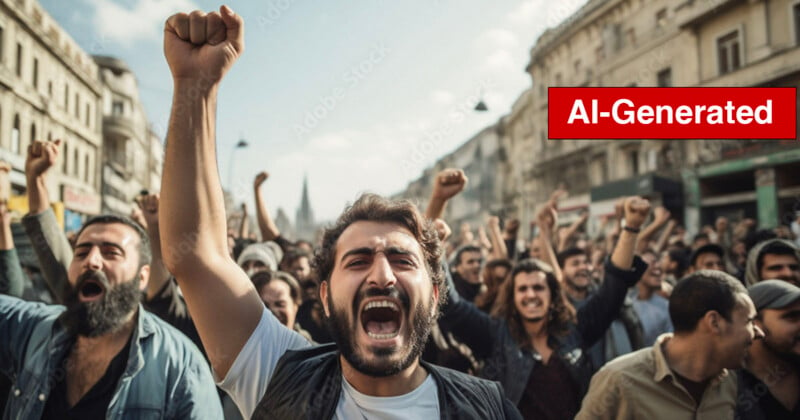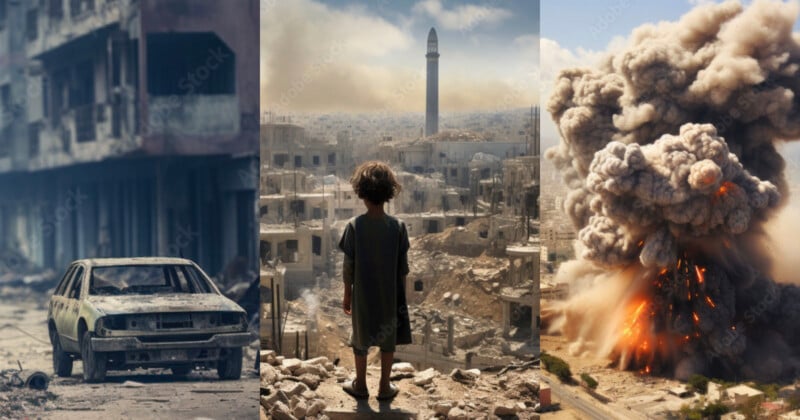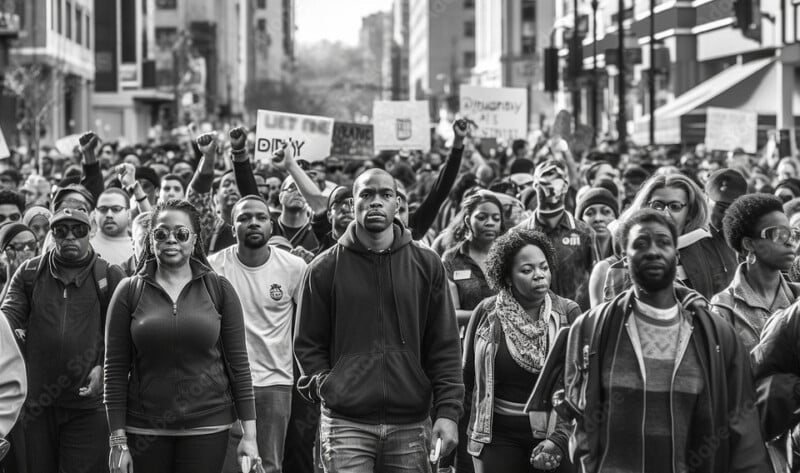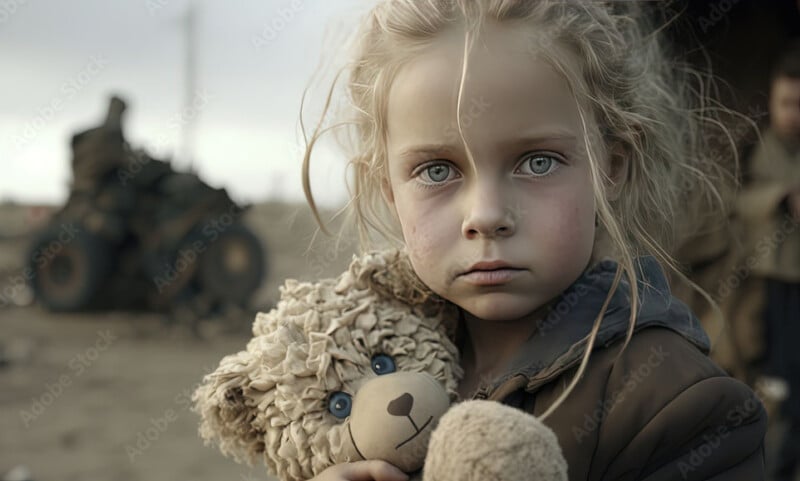Adobe Stock Changes Policy on AI Images Depicting Real Events

After it came to light that Adobe Stock is selling AI-generated images of the Israel-Hamas conflict, the photo giant has changed its policy regarding fake images that depict real events.
Adobe addressed the issue in a blog post last week, announcing it will prohibit AI images with titles that imply they depict newsworthy events. A Washington Post report found that unlabeled AI images are being sold on Adobe Stock; something that the company says it will take action on.
“Stock content should always be clearly marked when used in editorial content to help ensure people are not misled into thinking a real event is being depicted by the stock content,” says Adobe.
PetaPixel was among the first news outlets to report that a search for “Israel-Palestine conflict” on Adobe Stock brought up a greater number of AI-generated images than real photos.

The rise of AI imagery is of real concern to public discourse: The actress Rosie O’Donnell shared this AI image from TikTok of a Palestinian mother dragging her children and belongings down a rubble-strewn road. She believed it was real stating that it was not an AI image — but she later deleted the post.
Adobe is keen to stress it is at the forefront of fighting misinformation via the Content Authenticity Initiative it is helping to spearhead.
But a search for “Israel-Palestine conflict” on Adobe Stock today (Monday) still brings up almost entirely images generated by AI.
The Washington Post also found AI-generated images of Black Lives Matter protests, the war in Ukraine, and wildfires in Maui; all of these depict real-world events and could be easily used in a news report on a blog, website, or any news media.


“We’re entering a world where, when you look at an image online or offline, you have to ask the question, ‘Is it real?’” Craig Peters, CEO of Getty Images, tells The Washington Post.
Tony Elkins from Poynter adds “If you’re just a single person running a news blog, or even if you’re a great reporter, I think the temptation [for AI] to give me a photorealistic image of downtown Chicago — it’s going to be sitting right there, and I think people will use those tools.”
Last week, the World Press Photo contest backtracked on an earlier decision to allow AI images into one of the categories of its competition after backlash from the photojournalist community.
Image credits: Adobe.